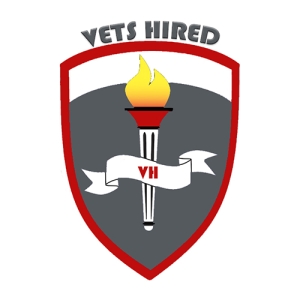TRANSITION FROM MILITARY TO LAW ENFORCEMENT
Many veterans choose to pursue careers in law enforcement after they leave the military. Their training and experience in the military can be beneficial in law enforcement roles, as they often possess strong leadership skills, discipline, and the ability to handle stressful situations.
Law enforcement agencies, such as police departments and sheriff’s offices, often have programs to recruit and hire veterans. Some agencies even offer additional training and support for veterans, recognizing the unique skills and experiences that they bring to the job.
However, the transition from military to law enforcement can also be challenging for veterans, as the two careers require different skills and mindset. Some veterans may struggle with adjusting to the pace and nature of law enforcement work, which can be slower and more bureaucratic than military operations.
It is important for veterans who are considering careers in law enforcement to research the different agencies and roles available, and to seek support from organizations that specialize in helping veterans transition to civilian careers.
Additionally, it is essential for law enforcement agencies to provide training and support for veterans, and to recognize and address any challenges they may face on the job.
Transitioning from military to law enforcement can be challenging for veterans, and they may face a number of problems during the process. Some of the common issues include:
- Culture shock: Law enforcement agencies often have different cultures and norms compared to the military, and veterans may find it difficult to adjust to the new environment.
- Different skill sets: Military and law enforcement careers require different skills and ways of thinking, and veterans may need to acquire new skills to succeed in their new role.
- Dealing with bureaucracy: Law enforcement work can be slower and more bureaucratic than military operations, and veterans may struggle with the pace and procedures of their new role.
- Mental health challenges: Many veterans struggle with mental health issues such as PTSD, depression, and anxiety, and these conditions can be exacerbated by the transition to a new career.
- Lack of support: Some veterans may feel isolated and unsupported during the transition process, and may struggle to find resources and support from their new colleagues.
There are several programs and resources that can support veterans in their transition from military to law enforcement careers. Some of these include:
- Military-to-Law Enforcement Programs: Many law enforcement agencies have programs specifically designed to recruit and train veterans for careers in law enforcement. These programs may provide additional training and support to help veterans adjust to their new role.
- Veteran-Specific Law Enforcement Organizations: There are several organizations that focus specifically on helping veterans transition to careers in law enforcement. These organizations offer resources, training, and support to help veterans navigate the process and succeed in their new career.
- Mental Health Services: Many veterans struggle with mental health issues, and it is important for them to seek support and treatment. The Department of Veterans Affairs (VA) provides a range of mental health services to eligible veterans, and there are also many non-profit organizations that offer resources and support for veterans with mental health issues.
- Transition Assistance Programs: The Department of Defense provides transition assistance programs for separating service members to help them transition to civilian life, including career and education opportunities. These programs can help veterans connect with resources and support for their transition to a law enforcement career.
- Networking Opportunities: Connecting with other veterans who have gone through the same experience can be a valuable source of support and advice. There are many veteran organizations, online forums, and networking groups that provide opportunities for veterans to connect and support each other.
By utilizing these resources, veterans can increase their chances of a successful transition from military to law enforcement careers. It is important for veterans to seek out the resources and support that are best suited to their individual needs, and to connect with other veterans who have gone through the same experience.



